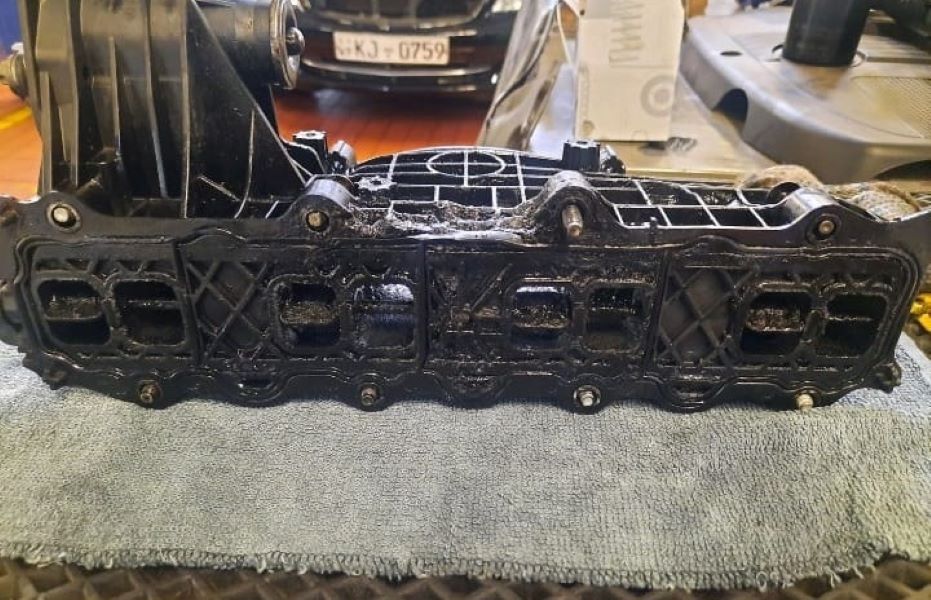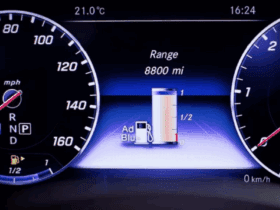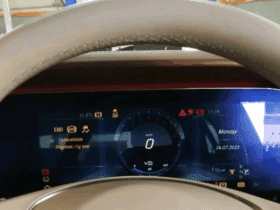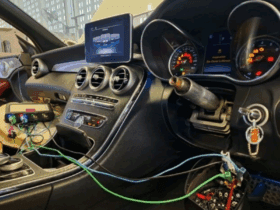Table of Contents
Mercedes Keep Losing Power : A Case Study on the Mercedes-Benz C300
If you own a Mercedes-Benz C300 W204 Equipped with OM651 Engine and have been experiencing power loss, you’re not alone. The issue of Mercedes Keep Losing Power is one that many owners have encountered, and it can be both frustrating and concerning. In this article, we’ll dive into a real-world case study to explore the root cause of this problem and how it was successfully resolved.
Vehicle: Mercedes-Benz C300 W204
Complaint: Mercedes Keep Losing Power
The Case Study: A Closer Look
A Mercedes-Benz C300 W204 came into the workshop with a complaint that it keeps losing power. This problem can manifest in various ways, such as sluggish acceleration, poor engine response, or even stalling. To identify the underlying cause, a thorough diagnostic check was performed.

Diagnostic Findings
The diagnostic scan revealed two critical fault codes:
- P263509: The fuel flow rate of fuel pump “A” is too low, indicating a component fault.
- P22807A: The air mass flow in the intake air system (cylinder bank 1) has a malfunction. A leaking or defective seal was detected.
The combination of these fault codes suggested issues with both the fuel delivery system and the air intake system, which are crucial for the engine’s performance.

Detailed Inspection
The first step was to inspect the intake duct cut-off servomotor, as the actual values indicated it was not responding. I checked its power supply and signal wires, and everything appeared to be in order. However, to be thorough, I decided to remove the servomotor for a visual inspection.

Upon removal, I discovered that the servomotor was dirty, which was likely causing it to malfunction. The dirt accumulation was obstructing the air flow circuit, contributing to the power loss issue.

The Solution
I cleaned the servomotor and the air flow circuit thoroughly, then reassembled everything. After reassembly, the vehicle was tested, and the problem was resolved. The Mercedes-Benz C300 W204 no longer experienced power loss, and the engine performance was restored.
Conclusion
The issue of Mercedes Keep Losing Power in the Mercedes-Benz C300 W204 can stem from various factors, but in this case, it was due to a malfunctioning servomotor and issues in the air intake system. Regular maintenance and thorough diagnostic checks are essential to keep your vehicle running smoothly and to prevent such problems from occurring.
Why is my mercedes not accelerating properly?
If your Mercedes is not accelerating properly, it can be due to several underlying issues. Here are some common reasons:

1. Fuel System Issues
- Clogged Fuel Filter: A clogged fuel filter can restrict the flow of fuel to the engine, causing poor acceleration.
- Failing Fuel Pump: A weak or failing fuel pump may not deliver enough fuel to the engine, leading to sluggish acceleration.
- Dirty Fuel Injectors: Dirty or clogged fuel injectors can prevent the proper amount of fuel from reaching the engine, resulting in a loss of power.
2. Air Intake Problems
- Dirty Air Filter: A clogged air filter can restrict airflow to the engine, making it hard for the engine to produce the necessary power for acceleration.
- Mass Air Flow (MAF) Sensor Malfunction: The MAF sensor measures the amount of air entering the engine. If it’s faulty, it can send incorrect data to the ECU, causing poor acceleration.
- Throttle Body Issues: A dirty or malfunctioning throttle body can hinder the proper airflow into the engine, leading to acceleration problems.
3. Transmission Issues
- Transmission Slipping: If the transmission is slipping, it may not properly engage the gears, causing hesitation or poor acceleration.
- Low Transmission Fluid: Low or dirty transmission fluid can cause shifting issues, which may result in poor acceleration.
4. Ignition System Problems
- Worn Spark Plugs: Spark plugs that are worn out or fouled can cause misfires, leading to poor acceleration.
- Faulty Ignition Coils: If the ignition coils are not providing a strong enough spark, the engine may struggle to accelerate.
5. Exhaust System Blockages
- Clogged Catalytic Converter: A clogged catalytic converter can cause a buildup of exhaust gases, reducing engine power and causing poor acceleration.
- Exhaust Leaks: Leaks in the exhaust system can reduce backpressure, affecting the engine’s ability to accelerate properly.
6. Sensor and Electronic Issues
- Oxygen Sensor Malfunction: A faulty oxygen sensor can cause the engine to run too rich or too lean, affecting acceleration.
- Electronic Control Unit (ECU) Problems: Issues with the ECU, such as software glitches or faulty sensors, can disrupt the engine’s performance and lead to acceleration issues.
7. Engine Problems
- Engine Timing Issues: If the engine timing is off, whether due to a worn timing belt/chain or a problem with the timing system, it can cause the engine to perform poorly and affect acceleration.
- Compression Loss: Low engine compression due to worn piston rings, valves, or cylinder walls can lead to reduced power and sluggish acceleration.
8. Turbocharger Issues (If Applicable)
- Turbo Lag: If your Mercedes is turbocharged, turbo lag or a failing turbocharger can result in delayed or poor acceleration.
- Boost Leaks: Leaks in the turbocharging system can cause a loss of pressure, leading to a lack of power.
9. Drivetrain Issues
- Faulty Differential: Problems with the differential can cause uneven power distribution, affecting acceleration.
- CV Joint Issues: A failing CV joint can cause vibrations and affect acceleration, especially during turns.
10. Software Issues
- ECU Software Updates Needed: Sometimes, a simple software update to the ECU can resolve acceleration issues, as newer software can optimize engine performance.
If your Mercedes is not accelerating properly, it’s crucial to diagnose the problem early. Consulting with a qualified mechanic or using a diagnostic tool to read any fault codes can help identify the issue quickly and efficiently.






Leave a Reply